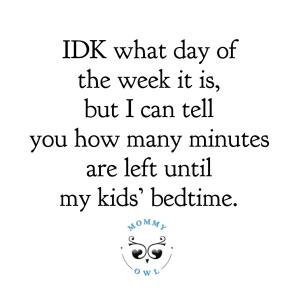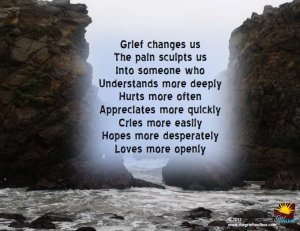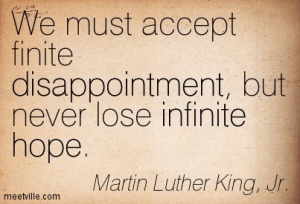Well, we are 8 months into this adoption journey, and I have to admit that I feel overwhelmed a lot more than I would like to admit.
It would be easy to say that I didn’t know how hard it would be, but the truth is I did know it would be hard. I knew it would be hard, but I didn’t feel that it would be hard. The immense distinction between those two is surprising. I think that is a kind of defense mechanism – if we could actually feel it, would we still choose it?
Oh, the discussions we had. We read the scary book, we talked about the resources and support we have, we told each other that we are good partners and we could figure out anything we need to figure out. The PRIDE training we received through CAS was great. I wish everyone could take that training and gain a better understanding of the experience of kids from hard places. So, I knew that our kids would be impacted by the trauma they experienced and that they will have to process that repeatedly throughout their lives. I knew that we would have to get to know these kids as we get to know ourselves as parents. I knew that we would probably not always love being parents. I knew we would have to adapt to lifestyle changes and new priorities.
I didn’t know:
- Just how pervasively the trauma would impact on our parenting and decision-making. As much as we would like our kids to have all the experiences and relationships they deserve, their trauma means that we need to be very selective and cautious about where we take them. We don’t tell them about day trips ahead of time because we need to be able to make the decision on the day whether or not we think they can emotionally handle that stimulation. This is hard for us because we spent so many years avoiding certain events because we didn’t have children to take, and now that we have children, we are avoiding events because our family just isn’t ready, yet. Cue visceral grief over the unfairness of it all – it’s not fair that these kids have to miss out because adults in their past screwed them over, and it’s not fair that we have to miss out because biology screwed us over.
- That my default parenting style would be totally different from my ideal parenting style. This has definitely been my greatest area of frustration and growth. I thought that I would be calm, easy-going, flexible, and affectionate. It turns out that I have a subconscious belief that children should obey their parents, and I feel triggered when they question my authority or act with defiance. I want to parent with connection, but when I am triggered, I accidentally parent with anger, and anger is counter-productive to building attachment. So, yes, while parents with securely attached kids can get away with responding in anger to their kids sometimes, parents of kids with attachment disruptions or issues cannot. We still do, of course, and if we handle it well – apologizing and taking responsibility for our feelings – we can minimize the damage done, but then we still have to deal with our guilt for flipping our lids. Cue parent-guilt to the extreme.
- How hard it would be to juggle getting things done and giving our kids the attention they need. Yes, we knew this would be difficult – all parents struggle with this on some level. I think what we didn’t know is how awful it would feel to rather wash dishes than play Barbie with our daughter. I slip into getting task-focused much more often than I thought I would. More guilt for that pile.
- How frustrating it would feel to have no control over parenting decisions made before we entered the picture. There are the big things, of course, the things that I can’t talk about, and on some level, I was prepared to be a therapeutic parent for the tough stuff. On another level, I wasn’t quite so prepared to deal with the frustration of not having had the chance to build family traditions from birth (see an upcoming post on the Easter fiasco).
- How heart-breaking it would feel to know that my kids love other moms more than they love me right now. I absolutely understand why this is the case. It is completely logical that they would have more love and trust for the caregivers they knew longer. They also feel a betrayal from losing that relationship, and so I logically know that this impacts on their ability to develop trust with me. But it still sucks. I can only hope that one day they are able to trust me as their mother. I can only hope, but I cannot expect.
- That it would be hard to love these kids sometimes. There, I said it. Sometimes, I resent their intrusion into my space, and that is so unfair to them. They didn’t choose this – I did. In the first few weeks, we delighted in every move they made to come closer to us. We want them to want to be close to us and to depend on us. That is what they need for their optimal brain development. They need to have adult caregivers that they trust and depend on and that love them unconditionally, no matter what. At first, I was able to see every opportunity to help them as an opportunity to build attachment. Here’s the thing that I get on a logical level – kids ask us to help on things that don’t matter so they can build up enough trust in us to ask us for help with the things that do matter. Yet, even knowing this, I feel irritated when they ask for help with things they can do on their own. And let me just say that Irritated Cindy is no fun to be around, and I dislike myself for inflicting her on anyone. There’s another good chunk of guilt to throw on that pile.
- How much harder it would seem to have 2 instead of 1. We thought, “Great! Insta-family! We’ll get it all done at once – it will be great!” In reality, it is literally impossible for me to give both kids all the attention they need and deserve, and there are times when they each need my full attention, but I am unable to give either of them what they need because I need to care for both of them. It is frustrating to think that if I could give this one 100% of my attention, I could deal with this situation and build connection, but I can’t do that. I love them both, and I am glad they have each other, but sometimes, I think one would be so much easier. I cannot believe there are families out there that adopt sibling groups of 5. That is just crazy talk.
- How hard it would be to maintain healthy self-care while learning to be a parent. I do not want to admit how often John and I end the day by bingeing on junk food and Netflix. We know it is not healthy. We know we can take better care of ourselves, but it is so hard to feel motivated at the end of the day to not turn to the comfort of the couch and some carbs. We are so lucky that our kids are pretty good sleepers, and we know we should be able to take advantage of that at the end of the day, but our brains just want to shut off. We are managing to lessen our guilt by reminding ourselves that even though it feels like much longer, we have only really been parents for 8 months. John likes to say that we have twin 8-month-olds who are 7 and 3. This is a succinct way of saying we are new parents, and we really don’t know what we are doing. We hope and expect it will get easier, but in the meantime, let’s throw a little guilt over the unhealthy habits onto that guilt pile. It isn’t quite big enough, yet.
- How powerful routines would be. What a lifesaver to have a schedule to guide the day when I am feeling overwhelmed and unable to make decisions. On many days, I am only able to look at one chunk of the day at a time. I just have to make it to snack time. Then lunch time. Then snack time. Then dinner time, and then bed time. Made it. Now, time to feel guilty for just making it through the day instead of cherishing the moments. Wow, look at the size of that guilt pile!

- That it would be the little moments that would make it all worthwhile. Like when the 7-year-old makes a joke that shows she gets our sense of humour, or when the 3-year-old sits patiently at the dinner table with his food in front of him and turns to me and says, “What grateful today, Mommy?” I thought that being called Mommy for the first time would be the most powerful moment, but it wasn’t. It was just a word to them, so it wasn’t loaded with meaning for me when they began to use it. For me, it is these small moments when something gels just a little bit that show we are becoming a family unit.
And we are becoming a family unit. We have come a long way in 8 months. When I think of how much has happened and how different we all are already, I am amazed that it hasn’t even been a year, yet. Still, if I had really known how difficult it would be, would I have still chosen this? On most days, I would say, “for sure”. But there are some days when I think I was a bad choice to parent these kids, and I made a mistake in saying I could do it. Thank goodness I am not alone.
And thank goodness there are amazing resources out there to help me learn. I have, unfortunately, wasted some time on resources that turned out to be outdated, so if I can save you some time, or you only want to read a couple of books, here are my current favourites: The Connected Child by David R. Cross, Karyn B. Purvis, and Wendy Lyons Sunshine (I actually think that this book should be included in the PRIDE training or assigned as pre-reading – although I struggle with the Christian bias, it is an amazing resource), Peaceful Parent, Happy Kids by Laura Markham (and Peaceful Parent, Happy Siblings by the same author). Karen Purvis also has a number of good Youtube videos about TBRI (Trust-Based Relational Intervention), which are worthwhile checking out. I am also finding Diane Poole Heller’s Healing Your Attachment Wounds (which is an audio book) to be quite enlightening in helping me understand how my attachment style is impacting on my parenting style.

One step at a time.







